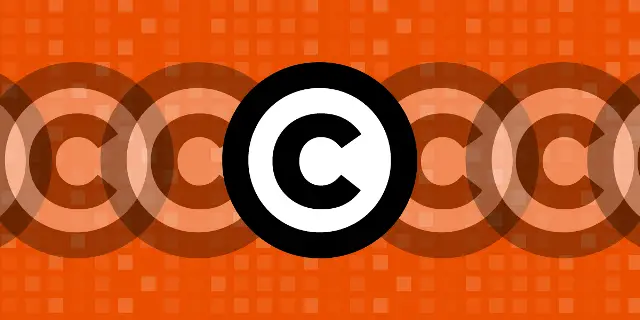Back in the mists of time, before the internet was invented, a curious concept existed, whereby people paid with their hard-earned money for entertainment. Whether it was purchasing a ticket for a visit to the cinema or buying music on a vinyl disc – you simply couldn’t copy what you bought.
If you wanted to see a film again, you’d buy another cinema ticket. If you wanted to listen to a song or album for free, you could borrow the LP or single from a friend. But that was it.
Fast forward 20 years to the 1970s and the affordability of the ‘cassette recorder’ made it possible for people to copy music easily from vinyl discs onto tapes. Leaving aside the often-appalling quality of those copies, that’s when the rot started. In the latter part of that decade, the VHS cassette made movies available to watch at home without having to wait months or years for the latest releases to arrive through your TV provider. As soon as VHS tapes started becoming commonplace, people soon learned to wire together two VHS players / recorders to copy movies illegally.
The next stage was music CDs and the availability of DVD (digital versatile disc), both of which made copying the digital data on them even easier for people to get away without paying for entertainment. Policing this copyright theft on a personal basis was almost impossible; you can’t imagine the cops kicking your door down in the middle of the night to look through your DVD collection to see which of them had photocopied paper covers and film titles written on the discs in Sharpie pen.
P2P
2 P or not to P, that is the question! But skipping our scene selection to the present day, the advent of the internet – enabling movies and music to be available via streaming and download goes hand in hand with rates of piracy. It’s the easiest thing in the world to copy and distribute film, TV, music and formerly printed media (in the form of eBooks). Early websites like Napster were superseded by P2P (peer to peer) giant LimeWire for people to share digital copies of films and music illegally. More recently, streaming service Putlocker was closed down in 2016, but Putlocker alternatives have abounded ever since.
According to Wikipedia, The Motion Picture Association (of America – the MPA) reported around 15 years ago:
“American studios lost $2,373 billion in 2005… representing approximately one third of the total cost of film piracy in the United States.”
That figure seems almost unbelievable – maybe their methodology needs a fact check – but in any event, the music and movie industries needed to bend with the wind or break. Using 1970s business models half a century further forward is unsustainable by any marker. So it is that making music and film available to stream and download legally, at excellent quality and relatively affordable prices has become the norm.
Read Also: Euro 2024: Lukaku Sets Unwanted European Championship Record Vs Slovakia
Do the math…
In short, why bother going to a ‘pirate’ streaming site or P2P sharing platform when you can get the latest film from the studio directly onto the 60” TV in your home for $10? You don’t have to worry about your internet service provider reporting you to the copyright police and provided your internet connection is adequate, the sound and picture quality will be state-of-the-art. Hence the marketing and delivery of modern content has shifted from selling expensive, ‘single use’ media to promoting mainly ephemeral, very cheap content. Naturally, high-end arty blockbuster movies such as Christopher Nolan’s ‘Oppenheimer’ will always be made; but much content nowadays is of great technical quality yet, sadly, often vacuous in terms of artistic merit.
There’s a reason that music was better than it is now in the 1950s and beyond – because people paid for it, and the artists involved at least got a healthy chunk of sales and royalties. What do you suppose a modern artist receives for, say, Amazon streams? Figures indicate from Forbes – $5k out of every million streams. That’s 0.005 cents per song per purchase. Compare that with a typical 5% of net profit from album sales in the 1980s. 1 million albums at a profit of say $2 per disc, that’s 5% of $2m a cool $110,000. In today’s money, that’s just over $400k. 80 times more revenue than streaming. You get what you pay for…
VPN & WordPress – Online security and international access
Unfortunately, human nature and societal inequality often cause people to try to get something for free, even when it’s reasonably priced; probably either for reasons of avarice, desperation or simply ‘sticking it to the man’.
Then there’s the gray area of accessing content from outside jurisdictional boundaries. If you’re on vacation in Mexico and want to access your Netflix account, officially you can’t access that content from outside the US. But whether you’re an illegal streamer or a law-abiding tourist temporarily away from home, using a Virtual Private Network (VPN) solves your problems in a stroke.
We’re guessing that if you’re reading this, as a WordPress (WP) professional or keen amateur, we don’t need to explain how a VPN works. Aside from the fact that there are many streaming WP themes and plugins for those creating digital media websites, accessing the internet via an IP address in your country of choice doesn’t necessarily need to be illegal. If you were at home in Michigan, watching your favorite Netflix series, why shouldn’t you be able to access a service you’ve paid for from the privacy of a hotel room Wi-Fi in Mexico?
Also consider the security implications of working away from home in the sun. Digital nomads often work from temperate climates in the winter. It’s not uncommon for WP pros to be creating sites and content for their clients from beachside bars in Portugal, Mexico, Jamaica or wherever. But if that tourist Wi-Fi hotspot is too hot (a hacker’s honey trap) imagine the havoc that an internet baddie could wreak on all your clients’ websites. Worse still, you could be a victim of ransomware, whereby all your assets disappear until you cough up some cryptocurrency.
All in all, leaving aside your opinions on copyright and its moral maze, using a VPN is a one-stop solution for enhanced security, whether you’re streaming what you shouldn’t be or creating a website for your clients from a far-flung sunny climate.





